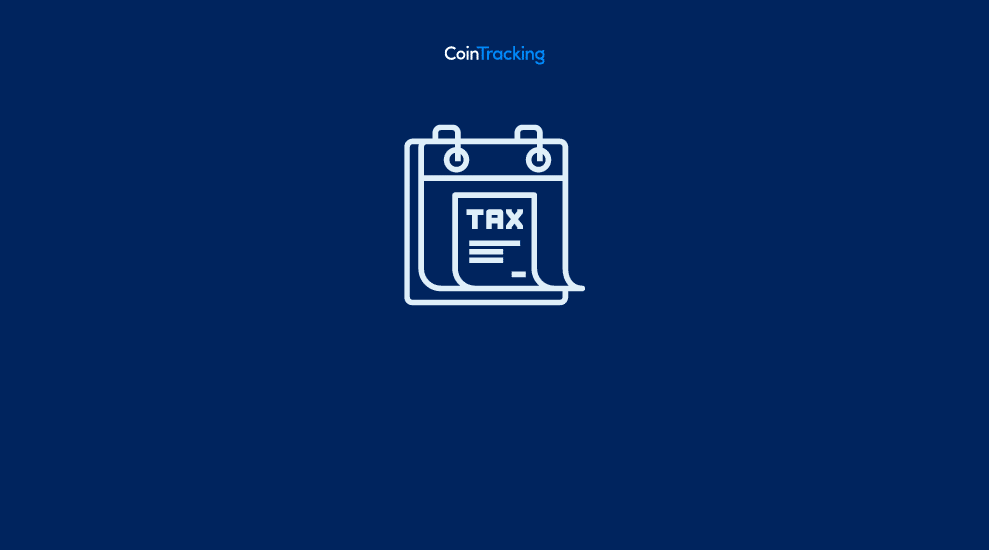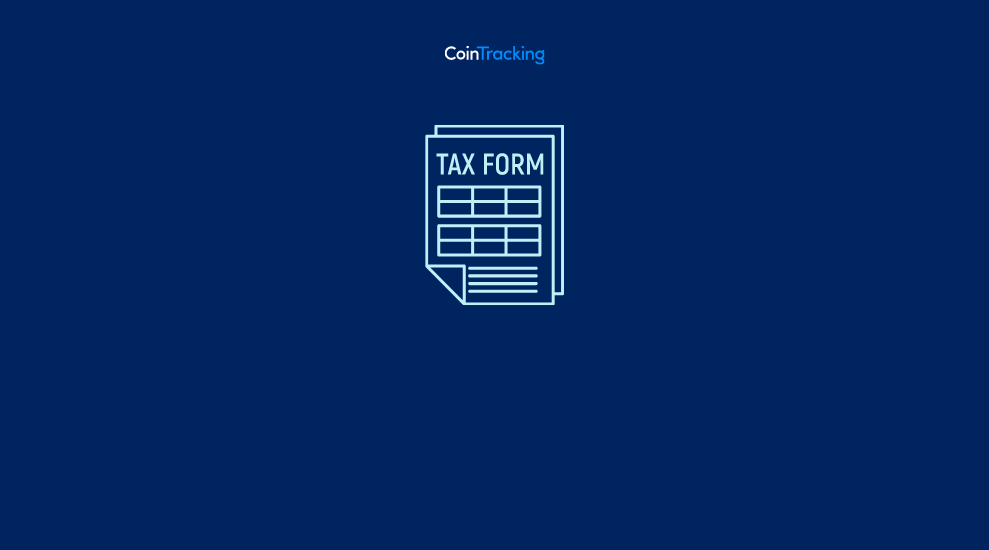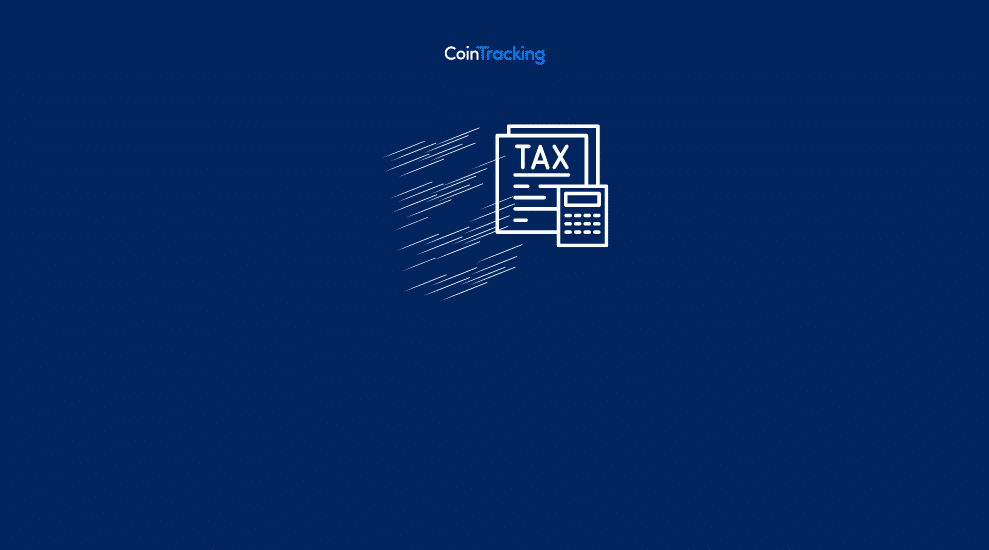Crypto Taxes USA: Expert Guide for 2024 [IRS Rules]
1 Aug, 2023 · 31 min read
Is there a crypto tax in the US? Trading crypto or earning crypto income leads to crypto taxes in the US, but the tax rate differs across operations.
From crypto trades to Non-Fungible Tokens (NFTs) and DeFi, taxation in the US can be quite complicated, with different tax rates, documents needed, ways to calculate taxes, and even myths.
Today, we’re clarifying everything about crypto taxes in the US, from crypto trading taxes to what tax forms you need for crypto and much more!

Crypto Tax US 2024: Simple Guide that Will SAVE You MONEY!
Crypto taxation for individual investors
Crypto transactions in the US for private investors will be taxed according to the type of crypto transaction, the investor’s tax rate, and other factors.
In the US, you must pay taxes on cryptocurrency trading of all types (except buying crypto with FIAT). If you trade cryptocurrencies, NFTs, or Metaverse tokens, you’ll be taxed at the capital gains level.
If you earn crypto income from airdrops, staking rewards, hard forks, or crypto interest, etc, you’d be taxed at an ordinary income level.
Cost basis
Your cost basis in a crypto trade will be the price you paid for the amount of cryptocurrency you bought at a certain time, plus the transaction fee, if any.
Let’s imagine that you bought 1 Bitcoin for $20K. When you sell that one Bitcoin, your cost basis will be $20K. If you only sell a portion of that Bitcoin, your cost basis will be the portion of the amount you sold.
For example, if you only sell 0.5 BTC, then your cost basis would be $10K (0.5 BTC* total cost basis of $20K).
If you purchased crypto with another crypto, your cost basis in the crypto you bought would equal to the deemed sales proceeds (FMV) of the crypto you sold.
For example, if you bought 2 ETH with some BTC worth $5K, your total cost basis in the 2 ETH would be $5,000.
When do gains from cryptocurrencies have to be taxed?
In the US, every time you trade cryptocurrencies for a gain or a loss, you’d have to report that trade in your crypto taxes.
If you trade any crypto for another crypto, NFT, token, or FIAT (e.g., EUR/USD), you’d have to determine the gain/loss on that trade based on the difference between the sales proceeds and your cost basis. Then, you need to report it according to its holding period, separately under long-term and short-term gain/loss.
Gains/losses from any crypto trading transaction in the US will have to be determined and reported on Form 8949 and Schedule D of Form 1040.
By default, individual taxpayers in the US follow calendar year tax reporting. All the crypto trades in the same calendar year will need to be reported on the same tax return for each crypto investor.
Crypto tax rate
Your crypto tax rate will depend on the nature of transactions, holding period, and other personal circumstances.
If you earn any crypto income from activities like airdrops, interest products, staking, hard forks, play-to-earn gaming, salaries, freelance payments, and others, your crypto tax rate will depend on your total taxable income and your applicable US income tax brackets for 2023.
If you trade any crypto, you’d be taxed at a capital gains level, with a crypto tax rate ranging from 0% to 37%, depending on your holding period and total income level.
Let’s cover how the difference in holding periods influences your crypto tax rate.
Short-term capital gains
If you held your crypto for 12 months or less before selling it for FIAT or another cryptocurrency/NFT/token/currency, you’d be taxed at a short-term capital gains level, ranging from 10% to 37%, depending on your personal situation (e.g., total taxable income, filing status).
Long-term capital gains
Crypto investors will be subject to long-term capital gains taxes if they hold a crypto for over 12 months before selling it. If you have long-term capital gains from crypto trades, your crypto tax rate will range from 0% to 20%, depending on your situation. Discover how long-term holding provides advantages to crypto investors.
Crypto tax allowance
In the US, there is a tax allowance, which also applies to crypto, if you do not cross a total income threshold each tax year.
US citizens (individuals) who earn less than $13,850 in 2023 (filing as single) don’t have to pay taxes in the US, including if that amount is from crypto income (e.g., aidrops, salaries, hard forks, crypto interest).
For married couples, this tax exemption amount increases to $27,700 for 2023, including income from crypto activities.
How to determine crypto gains or losses
You can determine your crypto gains or losses from trading by subtracting your cost basis (including transaction fees paid) for the trade from the total sales proceeds. For example, if you bought 1 BTC for $20,000 (cost basis) and then you sell it for $35,000 (sales proceeds), your crypto gain will be $15,000 ($35,000 – $20,000).
If you have been buying the same crypto over time, you would end up with multiple tax lots. When you sell the coin, your gain/loss calculation will be affected by the cost basis allocation method you use. We will talk about that in more detail later.
Let’s take a look at how different cost basis allocation methods work.
FIFO (first in, first out)?
FIFO (First-In, First-Out) is one of the permissible cost basis allocation methods for crypto gains/losses calculation in the US, while the IRS sees it as the default method. FIFO refers to using the earliest tax lot available for cost basis allocation purpose when doing gain/loss calculation for a trade.
Under FIFO, the earliest purchase transaction you make for a particular cryptocurrency will be used for calculating the cost basis when you sell that crypto.
Example
For example, if you buy 1 Bitcoin on date X for $20,000 and six months later you buy 1 Bitcoin for $25,000, you’d have two different cost basis (batches) of Bitcoin.
Using FIFO as your accounting method, the first time you sell any Bitcoin, you will use the first batch for calculating your cost basis. Imagine that one year after date X, you sell 1 Bitcoin for $35,000.
Crypto gain for the trade (FIFO): $35,000 (sales proceeds of 1 BTC) – $20,000 (cost basis of the 1st BTC acquired) = $15,000
Specific Identification/OPTI
In the US, you can also choose Specific Identification/OPTI (Optimized Method) as an accounting method for crypto gains/losses calculations.
If you want to use a different cost basis allocation method for a previous year that you already filed a tax return for, you can amend the tax return to switch to a new permissible method.
If you want to change your cost basis allocation method for a new tax year, there is no rule prohibiting it, as long as you are using a method permissible by the IRS.
Please note that most crypto tax software currently in the market do not track your cost basis allocation method from one year to another, and do not “lock” the method you used for each year.
Therefore, you could end up with a wrong tax report if you switch your cost basis allocation method from one year to another. To generate the correct tax report for current year under a method different than the one used for previous year(s), you will need to either use “close the book” method or work with a crypto tax software like CoinTracking that can track different methods and generate correct tax report results under different methods for different years.
Requirements for Specific Identification?
Specific identification is a cost basis allocation method allowed by the IRS. Theoretically, any allocation method other than FIFO can be considered a specific identification method. On CoinTracking, the specific identification method that can lead to the most tax advantageous result is usually OPTI or ZERO.
You can switch from FIFO to a specific identification method from one year to another, as long as the crypto tax software you use has the necessary features to allow such a switch and can produce the correct tax report after making the switch.
Example
With Specific Identification/OPTI, you can pick the specific tax lot you want to use to calculate your cost basis, which can help you lower your capital gain result and consequently your tax bill for the tax year.
Let’s go back to the example above.
It would be beneficial (in the short-term) to select the Bitcoin batch with the higher cost basis so that your capital gain is lower, and consequently, your capital gains taxes on that trade will also be lower.
Reporting crypto transactions/activities on your tax return.
There are a series of reporting obligations when you trade or earn cryptocurrencies in the US.
Firstly, you need to answer the crypto question on page 1 of your Form 1040. For the 2022 tax year, the IRS included the following crypto question on Form 1040:
“At any time during 2022, did you: (a) receive (as a reward, award or payment for property or services); or (b) sell, exchange, gift or otherwise dispose of a digital asset (or a financial interest in a digital asset)?”
If you only bought or moved cryptocurrencies between personal wallets, you could answer “No.” In most other cases, you would have to answer “Yes.”
For crypto trading and earning crypto income, the reporting needs would entail reporting gains/losses on Form 8949 and income on another schedule of Form 1040. Let’s cover how to report your crypto taxes in more detail.
Form 8949
The IRS Form 8949 is where investors should report their capital gains/losses, separated by their holding period (long-term versus short-term).
In the US, you need to report your crypto gain/loss for each trade on Form 8949 and Schedule D of Form 1040.
You need to report whether the gain was from a long-term trade (over 12 months) or a short-term trade (12 months or less). If you do not make such a distinction, the IRS will assume that your trade is short-term and it will be taxed at a higher rate than long-term capital gains.
Taxation of different crypto transactions
Crypto transactions are taxed differently in the US according to their nature, but in general, they are classified as either gains/losses or income.
Let’s cover in detail how different crypto activities, from staking to trading NFTs, are taxed in the US.
Crypto trading
Crypto trading in the US is taxed at the capital gains level, depending on the holding period of the cryptocurrency you sold and some other factors.
Your crypto trades can be taxed at a long-term capital gains tax rate, ranging from 0% to 20%, or a short-term capital gains tax rate between 10% and 37%.
Any trade of a cryptocurrency for another cryptocurrency, DeFi token, Web3 token, NFT, or FIAT (e.g., EUR/USD) is taxed at a capital gains level in the US.
Crypto to crypto trades
Crypto-to-crypto trades are taxable events in the US, subject to capital gains taxes, with tax rates depending on the holding period and some other factors.
Crypto-to-crypto trades include any trade of a cryptocurrency for another cryptocurrency/digital asset of any type, from crypto tokens to NFTs.
Staking
Staking is a taxable event in the US, with crypto staking rewards being taxed at the income level.
If you earn crypto staking rewards, you’d have to report the Fair Market Value (in USD) of those rewards at the time you receive them. The total FMV of the staking rewards you receive in the same tax year will need to be reported on your US Individual Income Tax Return for that year.
Lending and borrowing
Crypto interest products giving investors crypto rewards in the form of interest will be taxed at the income level in the US. Interest income is reported on Schedule B of Form 1040.
If you put your crypto assets to work in an interest investment vehicle, you’d earn rewards, similarly to staking, and you’d need to determine the Fair Market Value (in USD) of the rewards at the time you receive them.
However, borrowing crypto is usually not a taxable event in the US. If you use the crypto loan to generate investment income and/or trading gains/losses, you may be able to deduct the interest expense you paid for the loan if you are taking an itemized deduction on your tax return.
Mining
Crypto mining is a taxable event in the US, leading miners to pay income taxes on their newly created cryptocurrencies.
Miners input resources to create new units of cryptocurrency, and when they are in full control of those new tokens, they have to determine the Fair Market Value (in USD) of those units and then report it as income on Form 1040 (Income Tax Return).
If you are doing mining as a hobby, you need to report your mining income on Schedule 1 of your Form 1040.
If you are doing mining as a business (either sole proprietor or single member LLC), you will need to report your mining income on Schedule C of your Form 1040.
Crypto airdrops or hard forks
Receiving crypto due to airdrops and hard forks is a taxable event in the US.
If you receive a new crypto from an airdrop, you’d need to determine its Fair Market Value (in USD) when you receive it and then report that amount as income on your income tax return.
Hard forks are taxed the same way. If you hold a cryptocurrency that goes through a hard fork and subsequently you receive new coins, you’d have to determine the FMV of those coins when you receive them and report them as income on Form 1040.
Crypto payments
If you pay for a product/service with crypto, whether directly or through a crypto card, you’d have a taxable event in the US.
Crypto payments are treated as if you first sell the crypto for FIAT as a trade, which is taxed at the capital gains level, then use the FIAT for your purchase of goods or services.
Crypto gifts and donations
In the US, receiving crypto gifts is usually not a taxable event. But if you give crypto to someone as a gift and the FMV of the crypto exceeds the annual gift tax exclusion amount, $16,000 in 2022 ($17,000 for 2023), you would need to file a gift tax return.
Donating crypto to a charitable organization may qualify you to take a tax deduction and effectively reduce your taxes. You can deduct your donation at FMV if your holding period for the donated crypto is more than 12 months, and you don’t need to report any capital gains for the difference between the FMV and your cost basis.
NFT taxes (non-fungible tokens)
Trading any crypto for NFTs or trading NFTs for NFTs or any other crypto asset is a taxable event in the US.
If you trade any NFT, you’d be taxed at the capital gains level, with the tax rate depending on the holding period of the crypto/NFT. Gains/losses from NFT trading would be reported in Form 8949 and Schedule D of Form 1040.
Some people believe that NFTs are considered collectibles and should be taxed as such. Currently, there is no official guidance about NFT taxation, but the IRS appears to treat NFTs the same way as for cryptocurrencies.
If you’re an NFT creator, your sales proceeds (from your NFT sale) would be considered ordinary income and should be reported on Schedule 1 or Schedule C of your income tax return, depending whether you are doing NFT creation as a hobby or a business.
Using losses to reduce your crypto tax
In the US, you can use your crypto losses to offset your capital gains, effectively reducing your capital gains taxes. In addition, each year you can deduct up to $3,000 of net capital loss and use it to reduce your taxable income.
Let’s cover the tax treatment for other crypto losses.
Tax treatment for lost or stolen crypto
If you lose crypto in an accident or your crypto got stolen, you won’t be able to claim a loss deduction because these losses are considered personal casualty losses, which are not tax deductible in the US under the current tax law.
Crypto exchange bankruptcies
Crypto exchange bankruptcies like recent ones related to FTX or BlockFi cause investors to lose their funds. Legal action may help investors retrieve some of those funds. You may be able to take a capital loss deduction after the bankruptcy is over and the amount of your compensation has been finalized. You cannot deduct any losses while the bankruptcy proceeding is still going on.
Crypto taxes in other countries
Crypto tax laws are different across countries, with the US having one of the most complicated tax codes. Countries like Germany, Canada, the UK, and Australia all tax certain cryptocurrency transactions, while some countries offer benefits to long-term crypto investors.
Let’s cover the main aspects of crypto taxes in those countries.
Crypto taxes UK
The UK taxes cryptocurrencies at a capital gains and income tax level, depending on the nature of the transactions.
As a general rule, if you trade any cryptocurrency for another crypto, for FIAT, a stablecoin, or an NFT, you’d fall under a capital gains tax scenario.
If you spend crypto to buy a product or gift it, you’d be taxed on the gains. However, if you earn income from products like staking, you may be taxed according to your income tax rate.
Learn more about crypto taxes in the UK.
Crypto taxes Canada
Crypto is taxed in Canada in two ways: 1) at a personal income level for income-earning activities; 2) at a capital gains tax scenario for trades.
However, when paying taxes over gains, crypto investors only pay for 50% of their total capital gains. Discover more about how Canada taxes cryptocurrencies.
Crypto taxes Australia
Australia taxes individual cryptocurrency investors when trading cryptocurrencies for other digital assets, stablecoins, FIAT (e.g., AUD), and NFTs at a capital gains level. However, if you hold your crypto for over one year, you’d get a 50% discount on the capital gains taxes.
Learn more about crypto taxes in Australia.
Crypto taxes Germany
Crypto is taxed in Germany, from crypto-to-FIAT to crypto-to-crypto trades, subject to income taxes, with the tax rate depending on your level of taxable income.
However, German investors do not have to pay any crypto taxes if they hold their digital assets for over one year.
Learn more about crypto taxation in Germany.
Cryptocurrency taxation tips
Find a crypto tax advisor
If you need help with calculating your crypto taxes, you should look for a qualified crypto accountant. Certified public accountants who specialize in cryptocurrencies can help reconcile your crypto transactions with a crypto tax software. They can also provide you with crypto tax related advice, help you with tax planning, and prepare your crypto tax return.
Our network of crypto tax firms can help you, and our done-for-you Full-Service has a team of experts who can take care of the entire account reconciliation process for you.
Create tax return with a crypto tax calculator
You need to file the right tax forms to do your crypto taxes, and the easiest way to generate your crypto tax reports is with the help of a crypto tax software.
Offset crypto gains by using losses with crypto tax loss harvesting
One of the best ways to reduce your capital gains taxes is by deducting losses through crypto tax loss harvesting. If you have capital gains from other trades, you can realize a loss from a coin that lost most of its value, usually around the end of the tax year, and use the loss to offset your gain.
By using crypto tax loss harvesting, you can legally reduce your crypto tax bill. Discover more ways to reduce your crypto taxes.
Deduct transaction costs
When you calculate crypto gains, don’t forget to subtract trading fees from sales proceeds for calculating gain/loss for selling your crypto. Both centralized and decentralized exchanges charge a small fee for transactions, which, depending on the number of trades you have, can substantially reduce your capital gains taxes.
If you paid a transaction fee when purchasing a crypto with FIAT, you can add the transaction fee to your cost basis.
How do you save on taxes on crypto?
You can save on your crypto taxes by:
- Holding crypto for over 12 months;
- Applying the wash sale rule to generate losses;
- Donating cryptocurrency to a qualified charitable organization;
- Take crypto loans;
- Crypto tax loss harvesting;
- Invest in crypto with retirement accounts such as self-directed IRAs or Roth IRAs;
- Move to a crypto-tax-friendly state (e.g., Texas, Wyoming, Washington);
- Move to a crypto tax-free country, such as Portugal, Switzerland, Dubai, Singapore, or Puerto Rico.
Are you looking for how to avoid tax on crypto? Find out more ways to reduce crypto taxes from our guide.
Frequently asked questions
about crypto taxes in the US
Conclusion
Crypto taxes in the US can be complicated and confusing for crypto investors, given the complexity of the tax code and the need for proper reporting. Crypto tax software like CoinTracking can help ease that process, from importing trades to calculating gains/losses and generating the right tax forms.
In addition, a clear understanding of crypto taxable events is essential to ensure a smooth reporting process, from capital gains taxes on crypto trading to income taxes on all forms of earning crypto.
If you’re looking for a personalized crypto tax experience, please check out our Full-Service, where a professional crypto CPA will take care of your crypto taxes in a Done-For-You process.
This guide will be updated to reflect any relevant changes in crypto taxes. Stay tuned!
Share this









